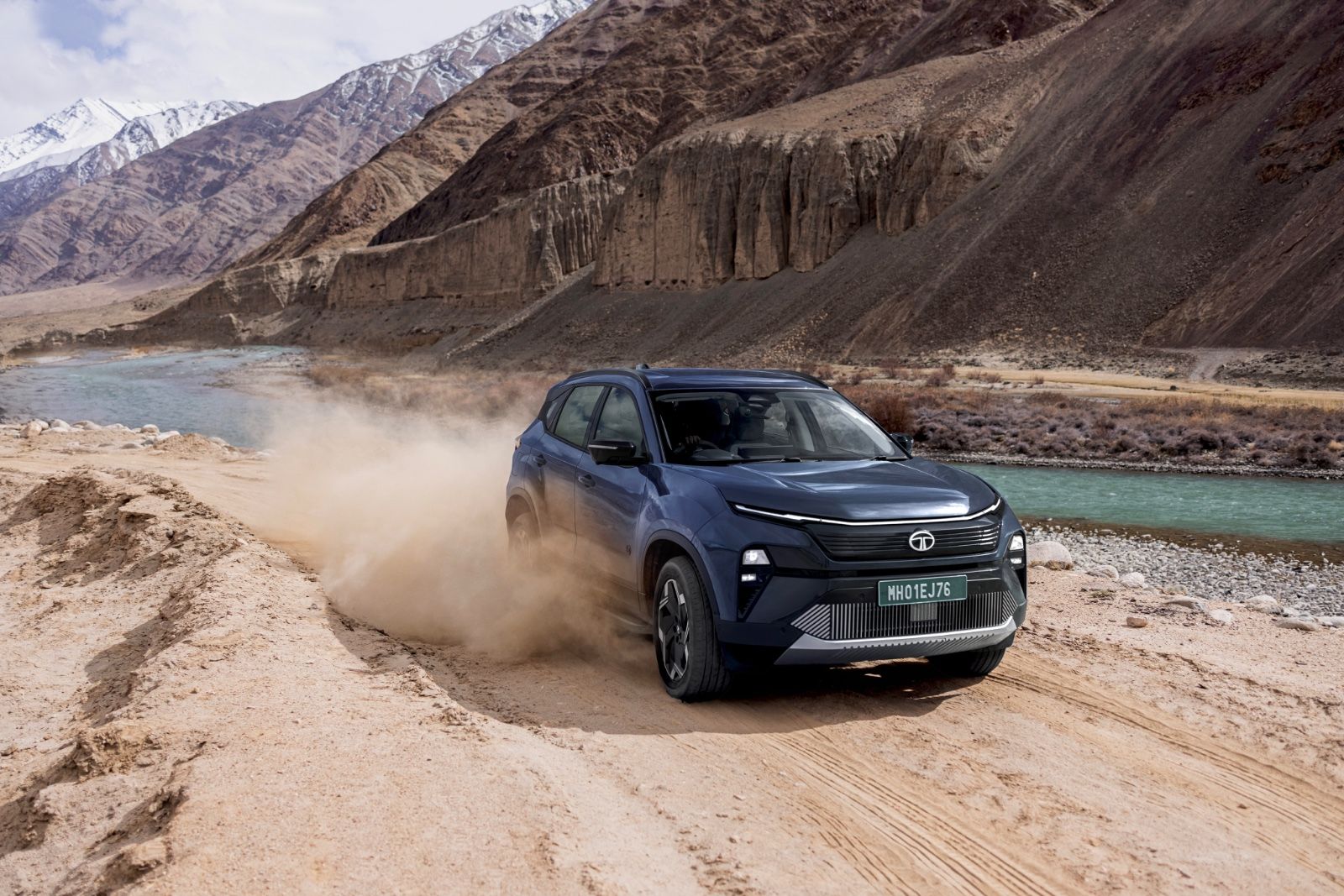The Tata Harrier EV has pulled off a neat party-trick: it wraps sports-car shove, genuine 4×4 chops and a gentleman-club cabin into a package that still undercuts most premium diesel SUVs. Launched at an irresistible ₹21.49 lakh (ex-showroom) for the base RWD trim and topping out at ₹27.49 lakh for the long-range 75 kWh variant, the electric Harrier arrives with a brief to be the only car a style-conscious, adventure-hungry bloke will ever need.
Sitting on the new Acti.ev electrical platform, the Harrier EV offers two battery options: 65 kWh and the headline 75 kWh pack promising up to 622 km of certified range. Bookings open 2 July, with dual-motor Quad Wheel Drive (QWD) prices revealed recently.

“EVs are already known in India for low running costs, comfort and ease of use,” says Vivek Srivatsa, Chief Commercial Officer at Tata.ev. “We now wanted to spotlight the other side of the story—performance and cutting-edge technology… so we committed to an all-wheel-drive Harrier EV.” The brief was clear: fuse Tata’s Sierra-and-Safari heritage with silent, torque-rich electrification and create one SUV equally at home outside a five-star lobby or on an off-road trail.
Tech That’s Been to the Gym
Under the skin lies Tata’s new TiDAL architecture, whose 1.5 C fast-charging adds roughly 250 km in 25 minutes—just long enough for a coffee break. Two battery choices headline the spec sheet: a 65 kWh pack for urban commuters and a 75 kWh unit for cross-country crusaders. A 540-degree camera with transparent-bonnet view lets you “see” rocks beneath the nose, while Level-2 ADAS is recalibrated for India’s tighter traffic gaps and still functions below 15 km/h—vital for bumper-to-bumper crawls.

“ADAS in global cars assumes a 7-10 ft gap; we recalibrated it for India’s typical 3-4 ft… Auto-park handles tight, unlined spaces common here, and the infotainment system is built around Indians’ love of music,” highlights Srivatsa. A 15.1-inch floating touchscreen, JBL 10-speaker hi-fi and DrivePay wallet round out the gadgetry. “The biggest hurdle was creating a truly holistic package… dual-motor AWD, a larger 75 kWh battery, advanced ADAS, a 540-degree camera… Achieving that integration while keeping the price attainable was a major engineering effort—but the team delivered,” adds Srivatsa.
Off-Road Wizardry
Twin permanent-magnet motors churn out a combined 313 hp and 504 Nm, hurling the 2.1-ton SUV to 100 km/h in 6.3 seconds. “The dual-motor AWD powertrain… a ₹22-lakh SUV delivering 0-100 km/h in 6.3 s seemed unimaginable until now," Srivatsa highlights how the Harrier EV plans to disrupt the segment. “It gives customers sports-car thrills without compromising safety or practicality.”

Crucially, Tata didn’t trade brawn for green bragging rights: approach, break-over and departure angles of 25.3°, 16.6° and 26.4° plus a 600 mm wading depth let the Harrier EV tackle ruts and river-crossings that would cow most city-bound electrics. The low-slung battery drops the centre of gravity, gifting surprising poise on twisting ghat roads and coastal highways alike. “Whether you’re climbing into the mountains, cruising long distances, chasing a quick weekend blast or arriving at an upscale dinner, the Harrier EV fits every scenario,” adds Srivatsa.
How Does It Stack Up Against Rivals

Even in single-motor guise, the Harrier EV undercuts the BYD Atto 3 on price, while offering a bigger battery and the all-wheel drive option in higher spec-variants that its Chinese rival lacks. It also muscles past the MG ZS EV on power and cabin pizzazz, albeit for a few extra lakhs, and lands right in the crosshair of the Mahindra XEV 9e. Hyundai’s Creta EV may be cheaper, but it remains front-drive only. “The segment moves about 25,000 units a month. Our aim is to secure a healthy share and reach a podium position… Exact targets are less important than meeting customer demand,” says Srivatsa about expectations from the Harrier EV.






